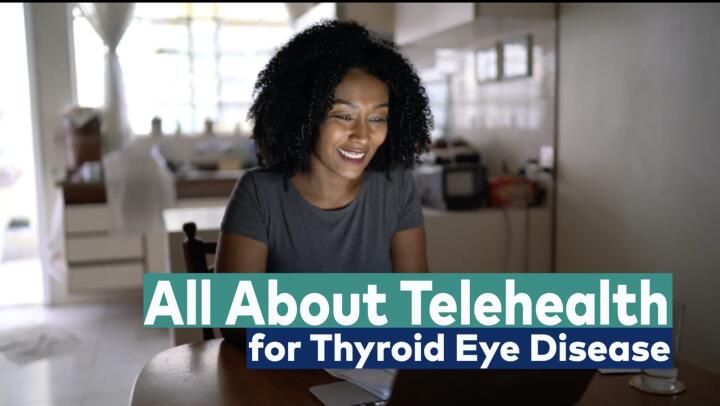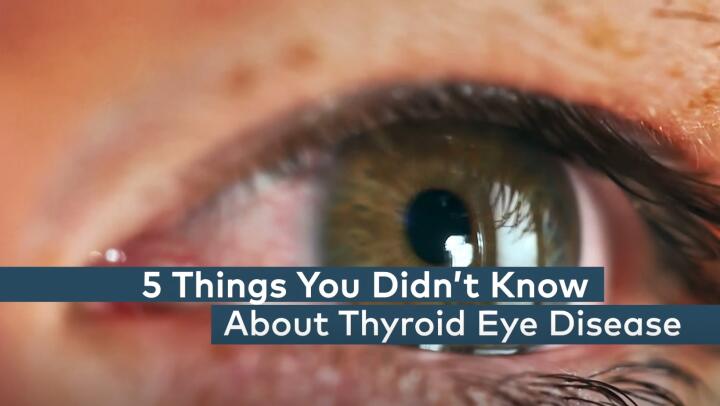
Overactive thyroid—or hyperthyroidism—can be a challenging condition, but it isn’t the same for everyone. Different people experience it in different ways. And while Graves’ disease is the most common cause, there are others. So treatment is not the same for everyone. Your treatment depends on the root cause of your hyperthyroidism, the severity of your symptoms, your age, your other medical conditions, and your preference.
Your doctor can tailor your treatment plan to your specific circumstances. Here are topics to bring up with your doctor to help him or her decide the best course of treatment—for you.
Explore your treatment options.
Fortunately, you have options when it comes to treating overactive thyroid including:
Antithyroid drugs block the thyroid gland from making thyroid hormone. The main drug in this class is methimazole (Tapazole). While antithyroid drugs bring quick relief, only 20 to 30% of people with Graves’ disease will reach long-term remission with this treatment.
Radioactive iodine is usually a one-time treatment that destroys the thyroid gland over several weeks or months. It is the treatment of choice for Graves’ disease because it has a high cure rate of about 80%. It’s noninvasive—you take radioactive iodine in pill form.
Thyroidectomy usually removes part of the thyroid gland. In some cases, a surgeon may remove the whole gland.
Beta blockers provide symptomatic relief, but don’t change the thyroid gland itself. Beta blockers can help control nervousness, anxiety, shakiness, and heart palpitations. Beta blockers are useful for controlling symptoms of hyperthyroidism while you wait for other treatments to take effect.
Ask your doctor why he or she thinks a certain treatment is right for you, and what other options might be available if it doesn’t help. Ask about the side effects to expect, too, and how long it may take for symptoms to subside. Having a plan may help you feel better.
Ask about the risk of hypothyroidism.
When you destroy or remove the thyroid gland, you are at risk of developing hypothyroidism. If this happens, you’ll need to take replacement thyroid hormones. This treatment is lifelong, but is relatively easy to take and will help you feel better.
Ask your doctor about the likelihood of developing hypothyroidism with the treatment he or she is recommending. For surgery, it may be acceptable to remove only part of the thyroid gland—called a subtotal thyroidectomy. This can reduce the risk of hypothyroidism to about 25%.
Understand the risk of relapse.
Relapse is a return of your symptoms. Treatments that destroy the whole thyroid gland eliminate the risk of relapse. But relapse is possible with the other treatments for hyperthyroidism. For subtotal thyroidectomy (part of the thyroid gland is removed), ask the surgeon about his or her specific rate of relapse. For antithyroid drugs, the risk of relapse is high at about 50%. The advantage to antithyroid drugs is they do not harm your thyroid gland. So other treatments remain options to explore in the future.
Discuss the possibility of weight gain.
People with overactive thyroid tend to have an increased appetite, but they don’t gain weight easily. Their revved-up metabolism keeps the pounds away. So it may be a shock if you start to gain weight with overactive thyroid treatment. But it isn’t inevitable. Your appetite should also return to normal with treatment. You can proactively monitor your food intake as your treatment takes effect. Ask your doctor what to expect and how to deal with any weight gain.
Discuss your pregnancy plans.
It’s important to discuss your pregnancy plans if you’re considering radioactive iodine. If you have radioactive iodine to treat overactive thyroid, you’ll need to wait six months before trying to conceive. This goes for both men fathering a child and women becoming pregnant.
If you’re pregnant or want to become pregnant soon, radioactive iodine isn’t an option. The same goes for breastfeeding. The other options, including surgery, are all possible during pregnancy and breastfeeding. In some cases, overactive thyroid is temporary during pregnancy—called gestational hyperthyroidism. Treatment isn’t always necessary, but beta blockers may be a good choice to manage symptoms. Talk with your doctor to decide which one is best for your circumstances.
Keep an eye on your symptoms.
After your initial diagnosis and treatment, your doctor will want to know when you experience symptoms, especially any new ones. Keep a symptom diary and call your doctor if you’re having new symptoms or you think old ones have returned.

















